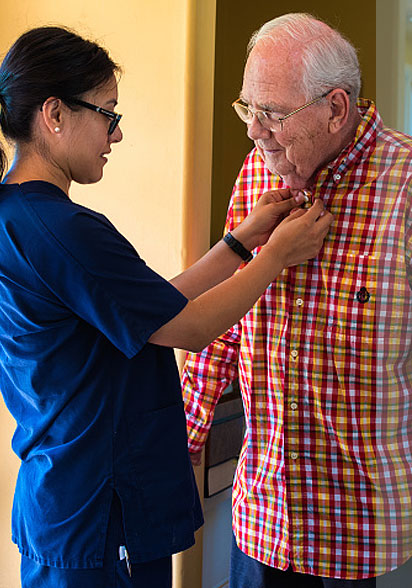SENIORS COPING WITH LOSS OF INDEPENDENCE
Posted on: March 11 2020

Help Seniors Cope with the Loss of Independence
A loss of independence is a fear many seniors have. When this fear is realized, there are several ways caregivers need to help.
According to an AARP study conducted in 2012, 57% of seniors over age 70 do not find it easy to live alone and need help with daily tasks. This loss of independence can have a toll on senior’s psychological and physical well-being.
Most people begin to live and perform daily life tasks independently by the age of 20. About 50 years later, many find that independence is no longer safe or viable. The loss of independence seniors face can often result if grieving, frustration, and other emotional upset. Caregivers can help seniors by understanding the process.
Types of Independence Seniors May Lose
• Mobility
• Ability to live alone
• Memory
• Comprehension/decision-making skills
• Strength to perform daily tasks
• Energy to clean or cook
• Social life
• Sight
• Hearing
How to Help Seniors Cope with Increased Dependency
Relying on other people’s assistance for basic tasks like bathing or common activities like driving can be frightening and frustrating for seniors. With the loss of independence, seniors also tend to lose some control over their schedule, freedom, preferences, and more.
Caregivers can help make decreased independence more bearable using strategies like these:
Maintain a Standard of Dignity
Requiring assistance with activities like bathing or shopping does not mean that seniors need to give up their dignity. Caregivers should always guard seniors’ privacy. It is also wise to use the terms a senior does when referencing body parts, activities, or even hygiene products.
Give Options for Care Giving
Since dependence requires trust and can be very personal in nature, it is important for seniors to have choices. Learn if a senior prefers same-sex caregivers, certain routines, etc.
Stay Organized and Consistent
Dependence means a loss of control. Seniors have to wait on others for assistance, which can be stressful. Caregivers should remain consistent in their routine so that seniors don’t need to be anxious about when or how their care will be provided. Organize necessary materials so they are accessible to seniors who cannot mobilize independently as well
.Offer Reminders That You Can Be Counted On
Depending on other people for help, especially with essential tasks, requires trust. This can cause seniors anxiety and stress. Remind a nervous senior that he or she is in good hands and is being taken care of to assuage their fears
Ask Instead of Telling
Care giving for someone who has lost a type of independence is a supportive role, not a leading role. Caregivers should ask seniors about their preferences, needs, etc., instead of telling them. For example, if a senior cannot cook for themselves, a caregiver should ask for input for meal planning.
Contact us at Around the Clock Home Care for information and schedule a free home care assessment.
Posted in News